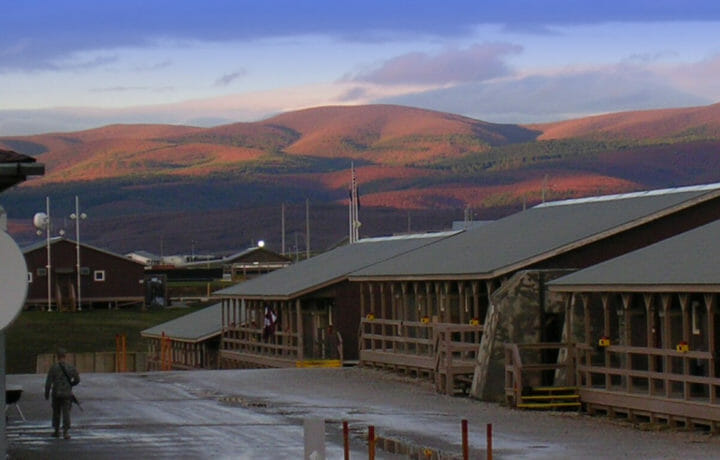Earlier this month, the Federal Interior Ministry in Berlin announced that 9,139 Afghan refugees were currently remain at U.S. military bases in Germany due to a suspension of evacuation flights after cases of measles were detected among Afghans arriving in the United States. According to the U.S. military, the Afghans currently at Ramstein Air Base and the Rhine Ordnance Barracks in Kaiserslautern have now received vaccinations against measles, mumps, rubella, and chicken pox. Flights are resuming at Ramstein, along with Qatar serving as the main flight hubs between Islamist Taliban controlled Afghanistan and the U.S.
However, were there other hubs? A little less publicized are the Afghans arriving at Pristina International Airport in Kosovo. Afghan families are receiving housing, medical, and logistical support from Task Force Ever Vigilant (TFEV), during their temporary stay at Camp Liya. TFEV consists of Soldiers from the 15th Engineer Battalion and the 18th Military Police Brigade of the 21st Theater Sustainment Command. These units deployed to Kosovo in August to assist in processing Afghans for resettlement in the United States.
The Kosovo government has agreed to allow the refugees to stay in its territory for up to one year. At Camp Bechtel, near Bondsteel, Kosovo houses another group of Afghans who worked for NATO nations during the war, until European resettlement is finalized.
Refugees Flagged in Europe or the Middle East Sent to Kosovo
More interesting is the minimal public disclosure of a small group of Afghans who remain overseas in Kosovo. According to the AP, dozens of refugees have triggered potential security issues during security vetting. These Afghans and their families have been sent to Camp Bondsteel, an hour’s drive south of Pristina. U.S. officials state that the exact number of Afghans in Kosovo continues to fluctuate. Inbound traffic to Kosovo continues, while security and documentation issues continue to be resolved so that Afghans can continue onward movement to the U.S.
The resettlement effort continues to be under intense scrutiny, following criticism of the Afghan frantic evacuation of U.S. forces and allies during the withdrawal from Afghanistan. The government has stated that a rigorous security vetting process to screen out national security threats from those who worked as interpreters for the American military and Afghan forces.
In response to vetting questions, Homeland Secretary Alejandro Mayorkas has defended the screening and said only minimal threats are being detected among the arriving refugees. National Security Council spokeswoman Emily Horne further bolstered the administrations defense, stating, “The fact that some people have been flagged by our counterterrorism, intelligence, or law enforcement professionals for additional screening, shows our system is working.”
Unknown Conditions at Camp Bondsteel
However, with what seems like a lack of transparency in Kosovo, human rights advocates are concerned about the diversion to Camp Bondsteel in Kosovo over the past month. Referring to lack of information about Afghan refugee status at Bondsteel, Jelena Sesar, a researcher for Amnesty International stated, “What really happens with these people, especially the people who don’t pass security vetting? Are they going to be detained? Are they going to have any access to legal assistance? And what is the plan for them? Is there any risk of them ultimately being returned to Afghanistan?” Sunil Varghese, policy director for the International Refugee Assistance Project stated last week, “We don’t know why people are being sent to Kosovo for additional screening, what that additional screening is, [or] how long it will take.”
As the White House works feverishly to resettle the Afghans, there is no great concern over questions from human rights advocates, stating it is too early to answer some of these questions. There is no knowledge of the U.S. sending anyone back to Afghanistan.




